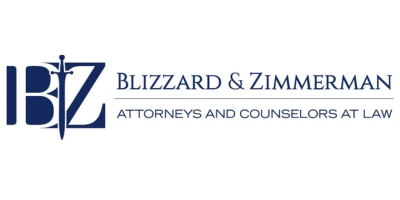Understanding Brady Violations in Texas: What You Need to Know
In the criminal justice system here in Texas or in ANY state in the United States, prosecutors (the district attorney, prosecuting attorney representing the state) are required to disclose certain evidence to the defense (you, your attorney, the attorney representing the accused in a criminal case) that may be favorable to the accused (you or your loved one who is being prosecuted).
This requirement stems from the 1963 landmark case Brady v. Maryland, which established that withholding exculpatory evidence violates a defendant’s constitutional rights. In Texas, Brady law violations can have serious implications for criminal cases, potentially leading to wrongful convictions or miscarriages of justice. In this blog post, we’ll explore what constitutes a Brady law violation and provide some examples to illustrate its significance.
What is a Brady Law Violation?
A Brady law violation occurs when the prosecution fails to disclose evidence that is favorable to the accused and/or material to their defense.
This includes evidence that could:
- Impeach the credibility of prosecution witnesses,
- Undermine the prosecution’s case,
- Or support the defendant’s innocence.
The prosecution has a legal and ethical obligation to disclose such evidence to the defense in a timely manner.
The Brady rule is a law that makes sure a criminal trial is fair. It says that the prosecution (the people who are trying to prove someone is guilty) has to share any evidence that might help the defendant (the person being accused of a crime). This is called exculpatory evidence, and it can show that the defendant might not be guilty or at least suggest a lesser sentence. This evidence has to be given to the defense team (the defendant’s lawyers) before the trial starts, so they can use it to build their case.
But sometimes, the prosecution doesn’t share this exculpatory evidence, and it’s only found after the trial and after a person has been convicted. When this happens, it’s called a Brady violation, and it can lead to an appeal or other legal actions to correct the mistake. This is something we often find in our work with clients after they’ve been convicted. Sometimes, it’s because the defense attorneys review the case files and discover that important evidence was hidden by the prosecution.
If this hidden evidence is found later during the appeal process, it can be used to challenge the conviction and even get it overturned.
Common Examples of Brady Law Violations
Witness Statements: If a witness provides statements to law enforcement that contradict their testimony in court or cast doubt on their credibility, prosecutors are required to disclose this information to the defense. Failure to do so could constitute a Brady law violation.
Exculpatory Evidence: Evidence that tends to exonerate the defendant or raise doubts about their guilt must be disclosed to the defense. This may include DNA evidence, surveillance footage, or witness accounts that contradict the prosecution’s narrative.
Police Reports: Police reports contain critical information about the investigation, including witness interviews, evidence collection, and other relevant details. If prosecutors withhold or alter police reports that could benefit the defense, it may constitute a Brady law violation.
Expert Witness Testimony: If the prosecution plans to present expert witness testimony at trial, they must disclose the qualifications, opinions, and findings of these experts to the defense. Failing to do so could deprive the defense of the opportunity to challenge or rebut the expert testimony.
Plea Agreements: If a witness or co-defendant agrees to testify in exchange for leniency or immunity, prosecutors must disclose the terms of the plea agreement to the defense. Concealing this information could undermine the credibility of the witness and constitute a Brady law violation.
Consequences of Brady Law Violations
Brady law violations can have serious consequences for criminal cases here in Texas or in any state in the United States. In addition to undermining the integrity of the criminal justice system, these violations can lead to:
- Wrongful convictions (this is where the 11.07 Writ of Habeas Corpus in Texas comes in to play),
- Overturned verdicts,
- Civil lawsuits against prosecutors.
Defendants who believe they have been the victims of a Brady law violation should consult with an experienced criminal defense attorney to explore their legal options. Texas Board of Legal Specialization certified criminal law and criminal appeal attorney Jacob Blizzard and his post conviction team work these types of cases on a regular basis.
Brady law violations represent a fundamental breach of the defendant’s constitutional rights and can have far-reaching implications for criminal cases in Texas. Prosecutors have a duty to disclose favorable evidence to the defense, and failure to do so can result in serious consequences. By understanding what constitutes a Brady law violation and being vigilant in defending against them, criminal defense attorneys can help ensure that their clients receive a fair trial and that justice is served.
Related Links:
Winning Brady Claims
Finding and Using Brady Claims
YouTube Videos:
Winning Brady Claims
Winning Brady Claims: Examples of Winning 11.07 Writ of Habeas Corpus Cases
Unlock The Secrets of Brady Claims: The Key to Winning Criminal Cases
Unlocking Freedom: How Brady Evidence Can Revolutionize Your 11.07 Writ

